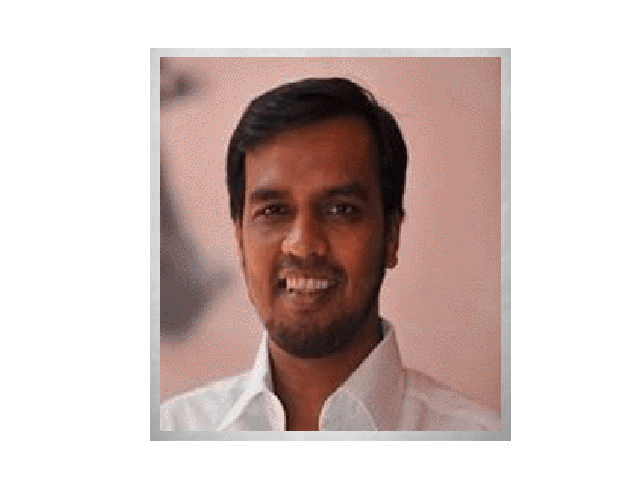
Mohammad Awrangjeb
School of Information and Communication Technology
Griffith University
Talk Title & Abstract
Remote Sensing of Objects: A Critical Review and Recent Findings
We employ several types of remote sensing data such as multispectral, hyperspectral, radar and point cloud data for various object extraction and/or modelling, e.g., buildings, powerline and landcover classification.
Biography
Dr. Mohammad Awrangjeb received his PhD degree from Monash University in 2008. He worked as a Research Fellow in Melbourne and Monash Universities. He is a recipient of the inaugural Discovery Early Career Researcher Award by the Australian Research Council (www.arc.gov.au) for the period 2012-15.
Dr. Awrangjeb is a co-author of more than 100 research articles in internationally renowned journals and conferences. His research interest includes object extraction and modelling, multimedia security and image processing, and fusion of remote sensing data. Currently, he leads several collaborative projects with industries.
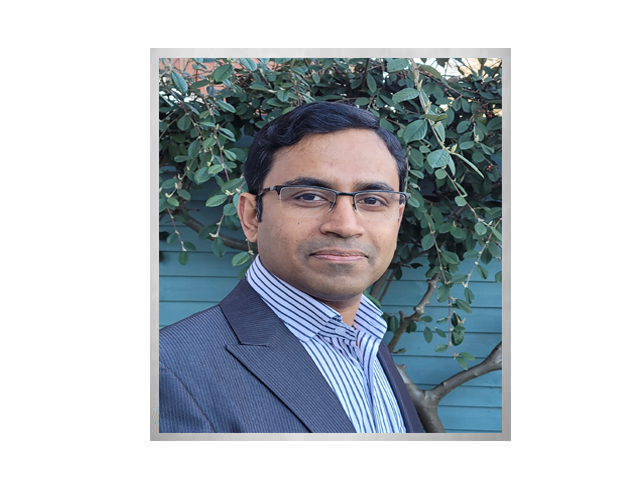
Julius Hossain
Head of Image and Data Analysis
University of Southampton
Talk Title & Abstract
Revealing the Complexity of Life: The Role of Bioimage Informatics in Advancing Heath and Disease Insights
In this keynote speech, I will discuss how bioimage informatics is advancing our understanding of the detailed structures and processes inside cells and organisms, which are crucial for understanding the basic functions of life. I will show how combining this knowledge with healthcare data can help us predict diseases and monitor recovery, particularly in cancer treatment. I will also highlight our groundbreaking work to create the first atlas of human cell division and discuss the exciting potential of developing similar resources for model organisms. This talk will highlight the essential links between fundamental research, practical applications, and real-world solutions, demonstrating how computer-driven methods can bring together various scientific fields to enhance our knowledge and foster innovation in health and biology.
Biography
Dr. M. Julius Hossain currently serves as the Head of Image and Data Analysis Group at the Centre for Cancer Immunology, University of Southampton. He holds a PhD in Computer Vision and Image Analysis and has a strong background in interdisciplinary research, utilizing computational and artificial intelligence-based methods to address fundamental biological questions related to cancer biology, cell division, embryonic development, antibody trafficking, disease diagnosis, and drug discovery.
Dr. Hossain has a proven track record in leading the development of complex computational frameworks for large scale collaborative research projects. He is recognized as the lead developer of the first atlas for human cell division (http://www.mitocheck.org/mitotic_cell_atlas), which maps essential mitotic proteins in space and time (Hossain* and Cai* et. al. Nature, 2018; *co-first author).
In addition to his role as a researcher, Dr. Hossain has extensive experience in teaching and securing research grants at various institutions around the world. He has successfully led or co-led research grant and fellowship applications totaling over GBP 2 million. His research has been featured in prestigious journals such as Nature, Science, Nature Cell Biology, and Nature Structural and Molecular Biology
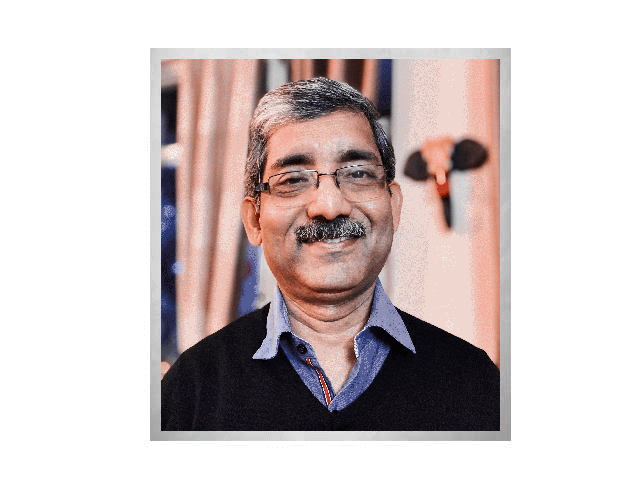
Apurba Das
Chair Professor
Indian Institute of Technology Delhi (IITD)
Talk Title & Abstract
Characteristics of Composites made from Carbon/PP Hybrid Yarns using Electrostatic Spray Coating
To warrant the comprehensive impregnation of substantially viscous thermoplastics into the carbon reinforcement, hybrid yarn production techniques of friction (DREF-II) spinning and electrostatic spray coating were used. 2D and 3D (angle inter-lock and orthogonal weave) woven fabrics were developed from the produced hybrid yarns, which were later consolidated to 2D and 3D composites. In the tensile tests and flexural tests, 2D composites were observed to be better than the 3D composites. However, superior notch impact properties were observed for 3D orthogonal woven composites. The superior notch impact properties of 3D orthogonal composites were attributed to the presence of the closer wrapping of binder warp ends that holds the filler and stuffer warp ends. From micro-CT scans, porosity was a common feature of DREF spun hybrid yarn composites. Also, composites made from powder coated towpregs presented better integrity and enabled in overcoming the disadvantages of the type of the weave. The composites made from electrostatic spray coating process can be used in biomedical applications due to their superior characteristics due to better impregnation of matrix under less severe consolidation (pressure, temperature and time) conditions. Also, the carbon-PP composites made from the electrostatic spray coating process are ergonomically suitable due to their lower specific weight.
Biography
Prof. Apurba Das is an Institute Chair Professor in the Department of Textile & Fibre Engineering at the Indian Institute of Technology Delhi (IITD). He has a long and impactful career of more than 33 years, making significant contributions to academia, a research laboratory, and industries. He earned his PhD from IIT Delhi in 1994 following his MTech in Textile Engineering in 1989 and a B.Sc. (Tech) in Textile Technology in 1986. He started his career with eight years of industrial experience across reputable industries before shifting to academia, where he has devoted the past 25 years to teaching, research, and mentorship. He mentored many undergraduate, postgraduate, and doctoral students. Presently he is guiding more than 10 doctoral students.
Prof. Das has been recognized as an educator for his excellent teaching skills, receiving the Teaching Excellence Award. He has developed and taught various courses at IIT Delhi, such as Science of Clothing Comfort, Technical Textiles, Testing of Technical and Functional Textiles, and Evaluation of Textile Materials. Also, he has contributed several courses to NPTEL (National Programme on Technology Enhanced Learning), which have been well received by students and professionals worldwide.
He is a distinguished researcher with over 250 journal publications, 130 conference papers, 6 authored and 2 edited books. He has also contributed several chapters to more than 20 additional books. His research interests are diverse, encompassing areas such as clothing comfort, protective textiles, nonwovens, smart compression bandages, instrumentation, electro-textiles, thermo-acoustic textiles, etc. He has led more than 60 sponsored research projects funded by external funding agencies, including the Ministry of Textiles, DST, DRDO, and CSIR. Notably, he has served as the principal investigator on projects focused on developing innovative protective textiles for defense applications, smart textiles, and sustainable textiles. He has 10 granted patents to his name with 14 more under application. His innovations such as a computerized fabric feel tester, multi-directional thermal protective performance tester, and automated wicking tester have been successfully transferred to industry with two of the instruments being already marketed for industrial and academic use. He has engaged in several international collaborative projects with countries like Hungary, Portugal, Poland, Slovenia, Germany, and Italy. Additionally, he has delivered numerous invited talks and served as a plenary speaker at various international conferences, contributing to the global discourse on textile science and innovations.
Prof. Das holds several honorary positions in academic and professional societies. He is a member of the editorial board of many international refereed journals. He is also a member of the research advisory committee and the board of studies for several institutions and universities. Besides these, he serves as a reviewer for numerous prestigious international peer-reviewed journals, and the examiner of numerous doctoral theses from different universities. He is a member of the different project evaluation committees and selection boards.
He has demonstrated exceptional leadership in research, innovation, and education in his career for which he has received numerous accolades. He was the organizing chairman and vice-chairman of national-level examinations like GATE and JEE (Advanced).
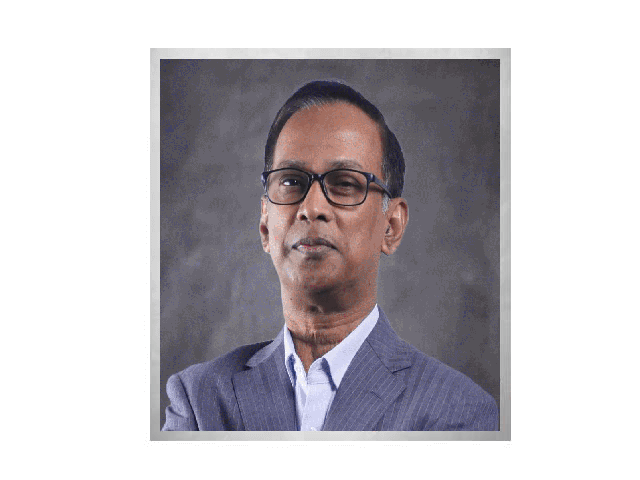
M A Hannan
Distinguished Professor
Sunway University, Malaysia
Talk Title & Abstract
Energy Storage Integrated Power Grid for a Net-Zero Future
Global energy consumption is increasing at a dramatic rate and most of the energy comes from fossil fuels which cause the problem of global warming due to the emission of greenhouse gases. Accordingly, the world is going through a crucial energy problem to supply efficient and cost-effective energy to face the rapid rise of energy need and increasing negative environmental impacts. Therefore, new guidelines and technological innovation are necessary to ensure energy security without causing emissions. The sustainable energy security and decarbonisation of electricity production is the national energy priority and global electricity challenge. This keynote focuses on various aspects of renewable energy integration in converting energy from conventional form to a sustainable form which in turn solves the existing net-zero problem. In this keynote, few developed projects on optimized algorithm or artificial intelligence-based energy storage systems (ESSs) integrated grid control technology and electric vehicle applications for a net-zero energy future will be demonstrated. Expected outcomes of this projects include new knowledge and comprehensive solutions using developed models and control technologies to achieve ESS integrated platform and electric vehicle integration ensuring new market strategies, decarbonized electricity and socio-economic viability towards net-zero pathways for future energy needs. These projects bring significant benefits in fulfilling the renewable energy initiatives to increase the uptake of battery energy storage and electric vehicle by 2030/2050. All the highlighted insights of this keynote will hopefully lead to increasing efforts towards the development of the battery storage integrated grid and EV applications for efficient energy conversion which in turn can reducing of global warming/net-zero.
Biography
M A Hannan is employed as Distinguished Professor & Professor of Intelligent Systems in Energy and Power Applications in the School of Engineering and Technology, Sunway University, Malaysia. He is an Adjunct Professor at School of Electrical Engineering, Korea University, Korea and Visiting Professor at Universiti Tenaga Nasional, Malaysia. He was a Visiting Professor at School of Electrical, Computer and Telecommunication Engineering University of Wollongong, Australia. Prior to join Sunway University, Prof Hannan was with College of Engineering, The National Energy University, Malaysia as a Senior Professor and Advisor for research and publication in Innovation and Research Management Centre, UNITEN since Sept 2016 to May 2023. He was also with the Faculty of Engineering and Built Environment, National University of Malaysia as a full Professor before joining to UNITEN since 2013. His research interest is on intelligent systems in energy and power applications related to renewables integration, energy storage system, hydrogen storage, smart grid, energy management system, building energy efficiency, battery controller and BEMS, HEV energy management system, inverter controller, MPPT, FACTS and custom power devices, power quality and intelligent embedded system development in academic and industrial (national and international) level of research and development.
He is awarded as a Highly Cited Researcher (HCR) 2022 & 2023 in Engineering by Clarivate Analytics which is based on multiple top 1% citated papers in the Web of ScienceTM and truly 1 in 1,000 (0.01%) of the world’s scientists. He has been obtained about RM 23.86M research funds, supervised 6 post-doctoral fellows, 23 PhD and 23 master by research students and his scholarly output in SCOPUS is 400+, citation is 18,261, H-Index 64 and in Google Scholar, citation is 24,766, H-Index: 74.
His aspiration is to provide leadership of research governance, funding, high quality training and mission, aimed at embedding a strong culture of research integrity, excellence, and impact towards achieving the championship and global standing. He is leading academic and industrial research on national and international funding arrangement in both fundamental and applied research, directing pre commercialized products, high quality research outputs and building collaborations. Also, transforming academic and industrial research technologies into teaching and learning process to ensure appropriate learning methods in higher education.
He is a member of many professional organizations such as Senior Member, IEEE, IEB, IAENG, BCS etc. He is serving as editor-in-chief of Journal of Energy and Environment, associate editor in IEEE Access IEEE Transactions on Industry Applications/Energy Conversion and Economics, served as program examiner, funding proposal evaluator, thesis examiner, editorial board members as well as in the committee of many Elsevier Science and IEEE Transactions.
He has been awarded many times for research and contributions, just a few such as, Gold medals in MTE, 2017; Gold medals in ITEX 2017; Gold medals PERINTIS, 2016; Gold Medal with Outstanding Achievement in International Innovation Festival, 2014; Runner up in Schneider Electric University Challenge “Go Green in Malaysia” 2012; Runner up in the DIGI Challenge “Change for Social Venture Competitions” 2011; Excellent Scientist for outstanding research in 2005 by MOHE, Malaysia; Gold medal in SIIF 2004, Korea etc.
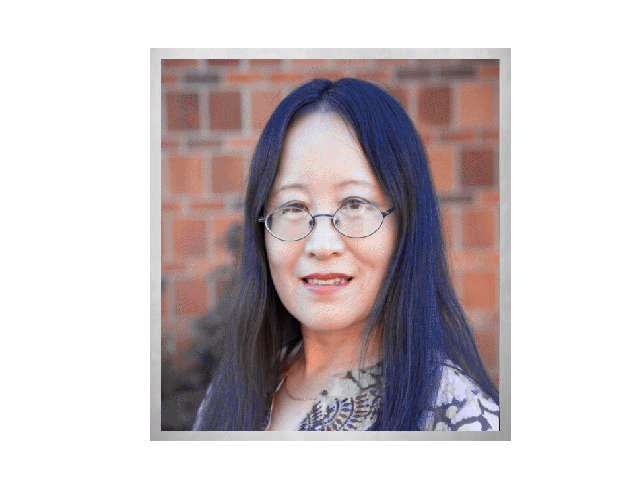
Xiaodong Liang
Professor
University of Saskatchewan
Talk Title & Abstract
Microgrid Formation-based Service Restoration in Distribution Grids
Recent advancement of renewable energy technology eables transforming centralized bulk power systems with large-scale power generation connected to transmission networks to decentralized systems with numerous small-scale distributed generation (DG) units connected to distribution networks. As an essential part of the future energy mix, renewable DGs creates new challenges in planning, operation, and control of tomorrow’s active distribution networks. A resilient power distribution network can reduce length and impact of power outages, maintain continuous services, and improve reliability. One effective way to enhance the system’s resilience is to form microgrids during power outages. This talk focuses on a novel dynamic microgrid formation technique-based service restoration method using deep reinforcement learning in renewable-rich distribution systems.
Biography
Xiaodong Liang received the Ph.D. degree in electrical engineering from the University of Alberta, Edmonton, Canada in 2013. She is currently a full Professor and Canada Research Chair in Technology Solutions for Energy Security in Remote, Northern, and Indigenous Communities at the University of Saskatchewan, Saskatoon, Canada. She was previously a lecturer at Northeastern University, Shenyang, China from 1995 to 1999, a Power Systems Engineer with Schlumberger (SLB) in Edmonton, Canada from 2001 to 2013 (promoted to Principal Power Systems Engineer in 2009), an Assistant Professor and later an Associate Professor with Washington State University in Vancouver, United States and Memorial University of Newfoundland in St. John’s, Canada from 2013 to 2019. Her research interests include power systems, renewable energy, and electric machines. She has authored/co-authored more than 260 refereed journal/magazine/conference papers, and six book chapters. She is a Fellow of IET, and the Deputy Editor-in-Chief of IEEE Transactions on Industry Applications.
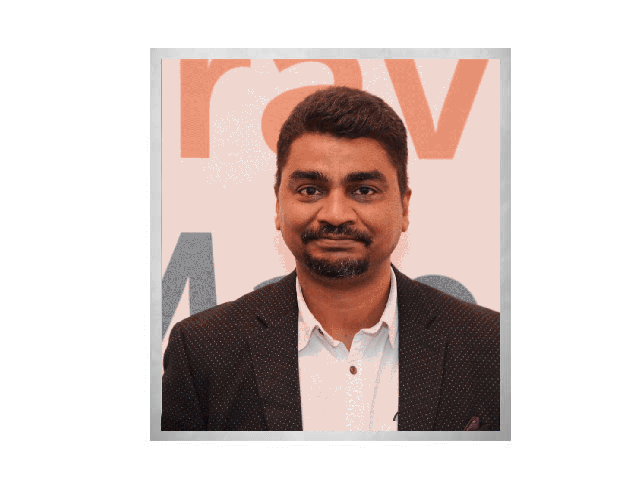
Nilanjan Dey
Associate Professor
Techno International New Town, Kolkata, India
Talk Title & Abstract
The bigger, the better?
The availability of huge datasets has frequently been praised as a prerequisite for creating successful models in the quickly changing field of machine learning. In actuality, though, a lot of real-world applications are limited by data. The difficulties and possibilities that come with working with limited datasets in machine learning will be covered in detail in this talk.
Biography
Nilanjan Dey (Senior Member, IEEE) received the B.Tech., M.Tech. in information technology from West Bengal Board of Technical University and Ph.D. degrees in electronics and telecommunication engineering from Jadavpur University, Kolkata, India, in 2005, 2011, and 2015, respectively
Currently, he is Associate Professor with the Techno International New Town, Kolkata and a visiting fellow of the University of Reading, UK. He has authored over 300 research articles in peer-reviewed journals and international conferences and 40 authored books. His research interests include medical imaging and machine learning. Moreover, he actively participates in program and organizing committees for prestigious international conferences, including World Conference on Smart Trends in Systems Security and Sustainability (WorldS4), International Congress on Information and Communication Technology (ICICT), International Conference on Information and Communications Technology for Sustainable Development (ICT4SD) etc
He is also the Editor-in-Chief of International Journal of Ambient Computing and Intelligence, Associate Editor of IEEE Transactions on Technology and Society and series Co-Editor of Springer Tracts in Nature-Inspired Computing and Data-Intensive Research from Springer Nature and Advances in Ubiquitous Sensing Applications for Healthcare from Elsevier etc. Furthermore, he was an Editorial Board Member Complex & Intelligence Systems, Springer, Applied Soft Computing, Elsevier and he is an International Journal of Information Technology, Springer, International Journal of Information and Decision Sciences etc.
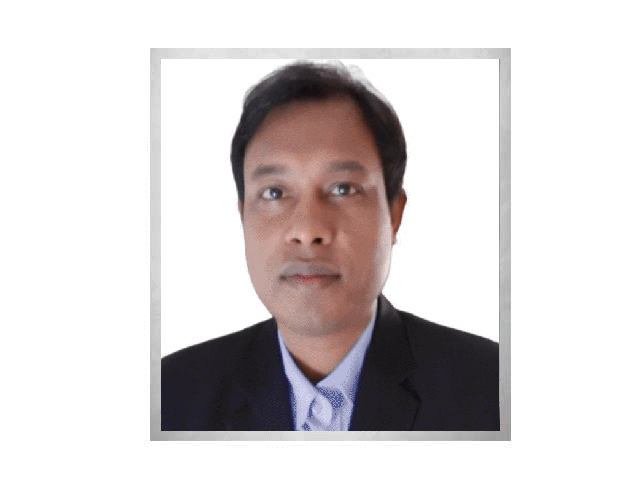
S. M. Riazul Islam
Associate Professor
University of Aberdeen
Talk Title & Abstract
Innovating Digital Healthcare with AI and IoT for Smarter Diagnosis
AI and IoT are revolutionizing healthcare by enabling smarter, faster, and more accurate diagnosis and monitoring systems. This keynote highlights cutting-edge advancements such as IoT-based disease monitoring, AI-driven prediction models, and explainable deep learning techniques for conditions like Alzheimer’s, cancer, and heart disease. We explore lightweight models, hybrid methods, and real-world applications, including COVID-19 detection and malaria diagnosis, emphasizing their potential in resource-limited settings. Key trends, challenges, and ethical considerations in deploying secure and scalable systems will also be discussed, showcasing a future of precision and proactive care powered by technology.
Biography
S. M. Riazul Islam is an Associate Professor of Computing Science at the University of Aberdeen, UK. His prior affiliations were with the University of Huddersfield, Sejong University, Inha University, Samsung R&D Institute, and the University of Dhaka. He has a Ph.D. in Information Technology. Dr Islam is a Senior Member of IEEE and he is also a Fellow of the Higher Education Academy (FHEA). His research interests include Applied Artificial Intelligence (AI), Medical Diagnosis, Digital Health, Inclusive AI, and Internet of Things.
© Green University of Bangladesh. All Rights Reserved.
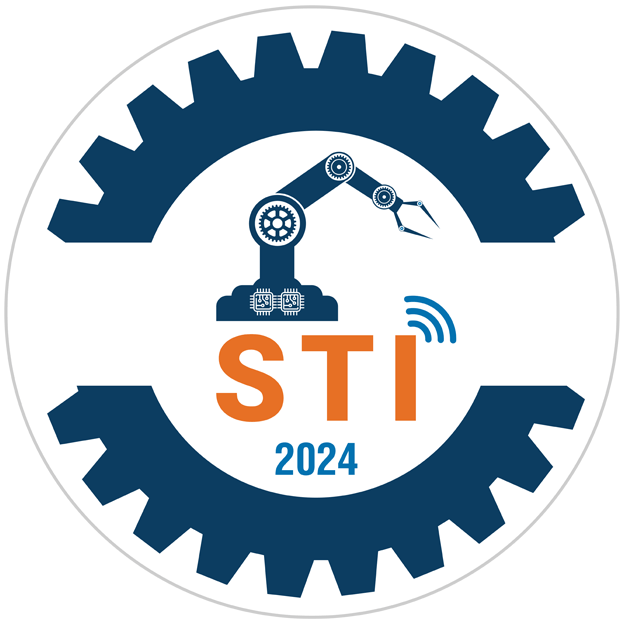 STI-2024
STI-2024